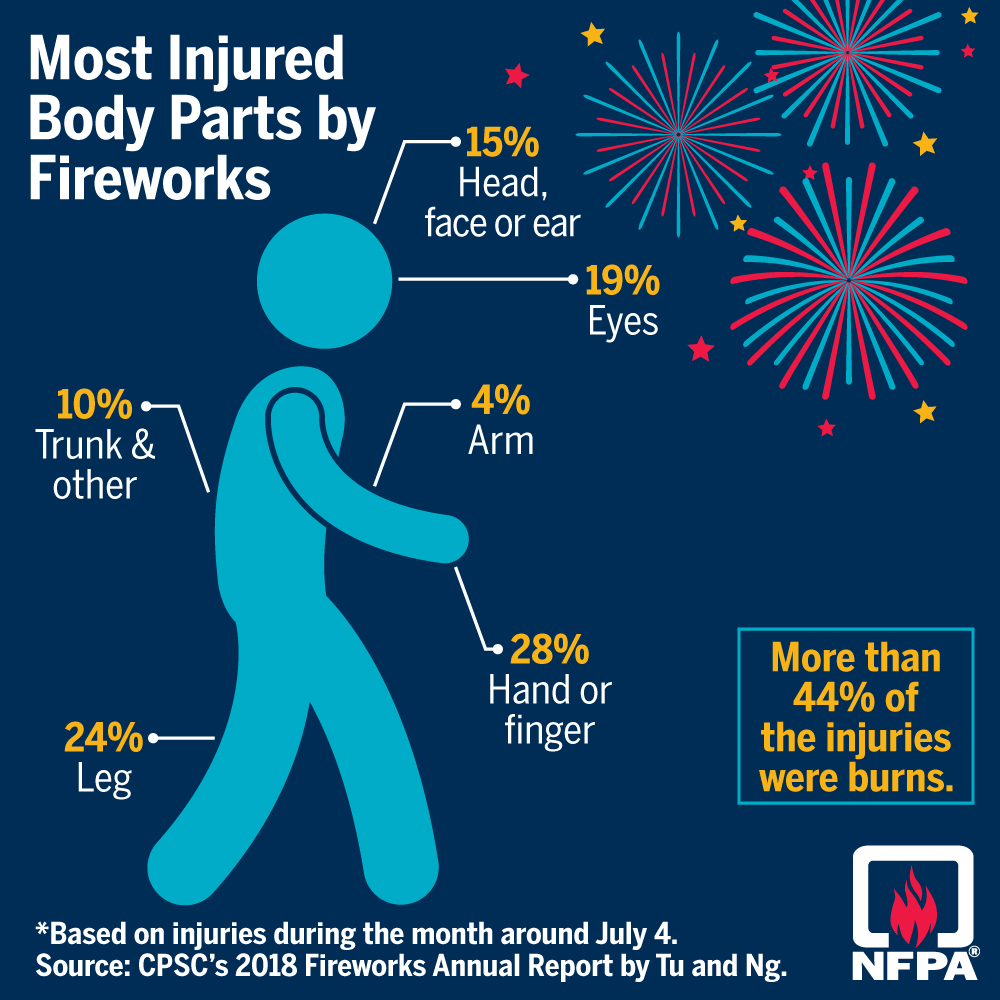Have a Blast, Safely, on Independence Day
July 2, 2020
This Fourth of July marks the state’s third year under a fireworks law (House Bill 542) that allows residents to legally shoot off bigger, louder and more dangerous displays than have been allowed for the last eight decades.
The change means there’s a higher potential for more injuries. Complicating matters is that more people seem to be setting off fireworks all year ‘round — creating complaints about noise and increasing the risk for injuries.
Still, the month around Independence Day sees the most fireworks-related injuries each year: On average, according to the Consumer Products Safety Center, 180 people go to the emergency room with fireworks-related injuries every day in the month around the July 4th holiday!
Figures show children and teens are most at risk, but anyone setting off or viewing fireworks can be injured.
According to the CPS, about 11,100 people were treated in U.S. hospital emergency departments in 2016, and at least four people were killed. In 2019 — two years after the new law passed — the number of deaths had jumped to 12.
The most injured body parts are hands and fingers, with eyes, faces and ears coming in second. More than 50 percent of the injuries are burns.
Fireworks were also responsible for “19,500 fires in 2018, including 1,900 structure fires, 500 vehicle fires, and 17,100 outside and other fires. These fires caused five deaths, 46 civilian injuries, and $105 million in direct property damage,” says the National Fire Protection Agency.
It’s not just fireworks, though — sparklers, available almost anywhere and considered by many as a “safe” alternative, burn at a temperature of about 2,000 degrees — as hot as a blowtorch, and hot enough to burn certain metals, not to mention skin.
This year, take precautions to ensure that your Fourth of July celebration is injury free by following a few tips from the CPSD.
• Never allow young children to play with or ignite fireworks.
• Always have an adult supervise fireworks activities. Parents don’t realize that young children suffer injuries from sparklers.
• Never place any part of your body directly over a fireworks device when lighting the fuse. Back up to a safe distance immediately after lighting fireworks.
• Never try to re-light or pick up fireworks that have not ignited fully.
• Never point or throw fireworks at another person.
• Keep a bucket of water or a garden hose handy in case of fire or other mishap.
• Light fireworks one at a time, then move back quickly.
• Never carry fireworks in a pocket or shoot them off in metal or glass containers.
• After fireworks complete their burning, douse the spent device with plenty of water from a bucket or hose before discarding it to prevent a trash fire.
We at Lehigh County Authority wish you a safe, fun-filled Fourth of July holiday – and hope that you leave the fireworks to the pros!